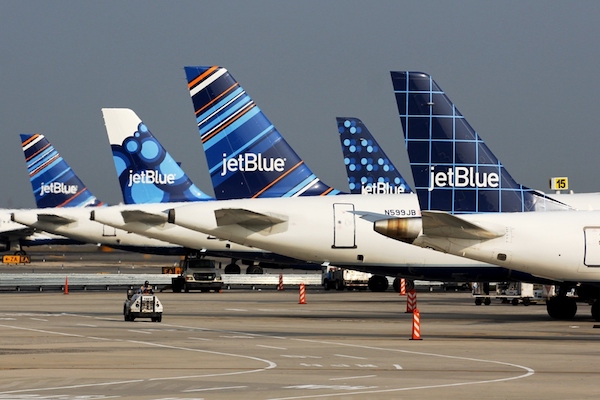In a decisive turn of events, JetBlue and Spirit Airlines have discontinued their proposed $3.8 billion merger.
The much-anticipated merger faced insurmountable regulatory challenges, leading to its termination.
The $3.8 billion merger between JetBlue and Spirit Airlines has officially been shelved following a court ruling. The decision was based on antitrust concerns, as the court found that such a merger could potentially harm consumers by reducing competition within the airline industry. The initial appeal filed by both carriers was unsuccessful, leading them to mutually agree on terminating the merger attempt.
First proposed last summer, the merger aimed to create a ‘national low-fare challenger’ to the ‘Big Four’ airlines in the United States. JetBlue CEO, Joanna Geraghty, envisioned this move as a strategy to increase competitive pressure, offering consumers more low-cost travel options. Despite support from both airlines, regulatory barriers proved insurmountable, ultimately thwarting their plans to consolidate and enhance market positioning.
These strategies include expanding distribution channels, enhancing loyalty program functionalities, and optimizing its existing network. Additionally, the company remains committed to reducing operational costs through fleet modernisation and targeted cost cuts, which are expected to yield significant financial benefits.
JetBlue has decided to continue its journey independently, emphasising its unique competitive advantages. Joanna Geraghty highlighted the company’s beloved brand and strategic market positioning as significant assets that will drive future growth. The focus remains on enhancing product offerings and maintaining a robust presence in key geographic areas to counteract the merger’s termination.
The airline’s management team remains optimistic about the future, underlining its commitment to restoring profitability and delivering shareholder value. The focus on its existing strengths is expected to pave the way for improved performance and customer satisfaction, aligning with JetBlue’s vision of maintaining a competitive edge in an ever-evolving market.
The JetBlue-Spirit merger scenario serves as a reminder of the complexity involved in executing large-scale mergers. Companies need to navigate a myriad of legal considerations, public sentiments, and strategic realignments to successfully merge operations. Navigating these intricacies often requires significant resources and careful planning.
As JetBlue and Spirit Airlines part ways, the broader airline industry continues to grapple with evolving regulatory and competitive landscapes. This situation exemplifies the delicate balance between strategic growth and regulatory compliance. While the merger’s failure marks a setback, both airlines still possess substantial potential to innovate and compete independently.
JetBlue is committed to reinforcing its core strengths and organic growth following the merger’s termination.
Both carriers remain influential players in the airline industry, each with unique paths to navigate.

